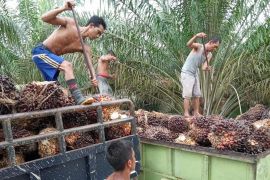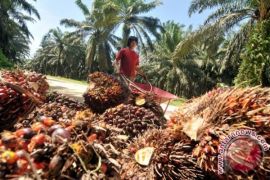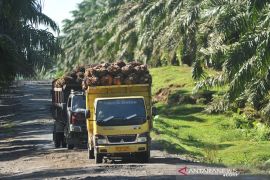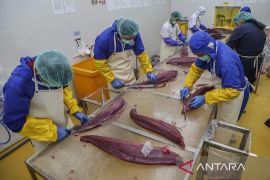The country`s director general of foreign trade of the ministry of trade, Deddy Saleh, said after familiarizing general policies in the exports of agricultural and forestry product exports here on Monday that he believed the disaster would affect the country`s crude palm oil exports.
It will certainly have an effect on exports of the country`s main plantation commodity but how much will the effect be it cannot as yet be calculated as observation still has yet to be done regarding the extent of the damage on the infrastructure in that country, he said.
He said if the impact on the exports of the commodity and othes was big his office would find solutions such as shifting the non-oil/gas exports to other consumers.
He admitted most of Indonesia`s crude palm oil exports went to China, Japan and the United States.
Regarding the country`s non-oil/gas exports he said they rose 29 percent in January 2011 from that of January 2010, which was far above the target for 2011 set at 12 to 15 percent.
He said national non-oil/gas exports reached US$11.9 billion in January 2011 which is the highest January monthly value so far or rose 89.5 percent and 34.1 percent from January 2009 and January 2008 respectively.
He said the export performance in January 2011 showed that non-oil/gas exports had continued to 2011.
The non-oil gas/oil balance of trade surplus in January 2011 meanwhile reached US$2.4 billion up 39 percent from January 2010.
The oil/gas balance of trade in January 2011 however suffered a deficit of US$0.5 billion. The rise in the value of oil/gas imports occurred as a result of increasing world crude price following a political crisis in Egypt and some other oil producers in the Middle East.
The contribution of 10 main products in the non-oil/gas exports reached 47.5 percent with palmoil, marine products and cocoa increasing significantly driven by price hike while manufacturing products such as textile and textile products, electronic, footwear and automotive products rose because of an increase in volume.
Deddy said especially production of crude palm oil now at around 17 million tons a year would be increased up to 40 million tons a year.
He said up to 90 percent of the total production has so far been exported.
He said the country`s five biggest exports markets had now changed to be Japan, China, the US, India and Singapore. China has replaced the US`s position while India replaced Singapore and Malaysia.
The head of the South Sumatra trade and industry service, Eppy Mirza, said non-oil/gas exports from the province especially crude palm oil, coal and fertilizers had given foreign exchange income to the province significantly.
From January to October 2010 they gave a foreign exchange income of US$2.818 billion with a volume of exports reaching 6.016 million tons.
(SYS/H-YH/A014)
Editor: Suryanto
Copyright © ANTARA 2011











